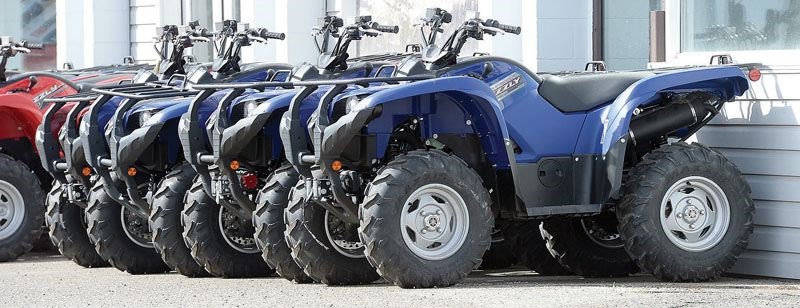Legislation around the age and training requirements for young all-terrain vehicle riders could help make recreational trail riding safer and reduce fatalities, according to Northern Health injury prevention co-ordinator Lynette Hewitt.
"Legislation would be the ideal, but the next best scenario is a harm-reduction approach," Hewitt said.
About one quarter of all ATV-related deaths in Canada involve children and youth under the age of 15. The situation is particularly acute in northern B.C., where ATV injuries and deaths are well above the provincial average.
The Canadian Paediatric Society recommends that ATV drivers be 16 years of age or older and Hewitt said codifying that recommendation into law would help. However she concedes it would only help make things safer if it came with appropriate enforcement tools.
"[Pediatricians] see these injuries as being so traumatic, so life-changing and yet so preventable that they advocate very strongly for making sure children are at least 16 years of age and are more physically capable of handling the machine and potentially have a driver's license," Hewitt said.
In absence of strict rules, Hewitt said it's important for parents and guardians to ensure young ATV users are supervised, are wearing helmets and other safety gear and are using appropriate machinery when riding. She said having young people at the controls of ATVs that are too big, too heavy or too powerful is more dangerous because youth don't have the cognitive and motor skills to avoid or get out of dangerous situations.
"I am very aware that there are families living in this region who will not agree with the [paediatric society's] recommendations and will allow their children to operate ATVs at a younger age," she said. "In this case our main goal is to encourage parents to ensure measures are taken to keep their children safe."
The provincial government just passed the Off Road Vehicle Act, and while it doesn't slap any age restrictions on ATV use, it does call for a one-time registration fee for ATVs and creates a framework for the creation of safety rules like mandatory helmet use. Prior to the law receiving royal assent on March 24, B.C. was one of only two provinces, along with Alberta, that doesn't require all riders to wear helmets or have young riders take safety courses.
The registration fee would be required for ATVs that use Crown land, but not those that are driven exclusively on private property. The law also increases the maximum fine for violating the act from $500 to $5,000.
Northern B.C. is full of great places to explore on ATVs, but the region also accounts for nearly half the ATV deaths in the province, despite accounting for less than seven per cent of the population. Since 2006, there have been 33 fatalities in the north, compared with 29 in the interior, nine on the island, five in the Fraser Valley and two in Metro Vancouver.
ATV-related injuries also outpace all other sports injuries in the region that require hospitalization. Since 2001, ATV injuries have resulted in about 1,100 hospitalizations in the north and cost the medical system nearly $6 million.
Traumatic brain injuries are among the most common types of injuries attributed to ATV use, according to a U.S. study. Abdominal injuries and fractures to ribs or extremities are also high on the list.
Hewitt said many of the injuries could be prevented by taking the appropriate safety action, such as wearing a helmet.
"The vast majority of these, they're all things we can do something about," she said. "They have factors that have decision making - or lack of decision making - as part of the process leading up to that injury."
Young adult males are also at a higher risk in relation to other groups, in part because they account for the majority of ATV users in the region. Northern Health regional lead for men's health Holly Christian, said traumatic injuries are life-altering experiences for the men and their families.
"These men are productive, contributing members of our society and while some may be single, many men affected by ATV injuries have young families to support," she said. "From a men's health perspective, this represents a significant burden to men - particularly young men - in our community."



